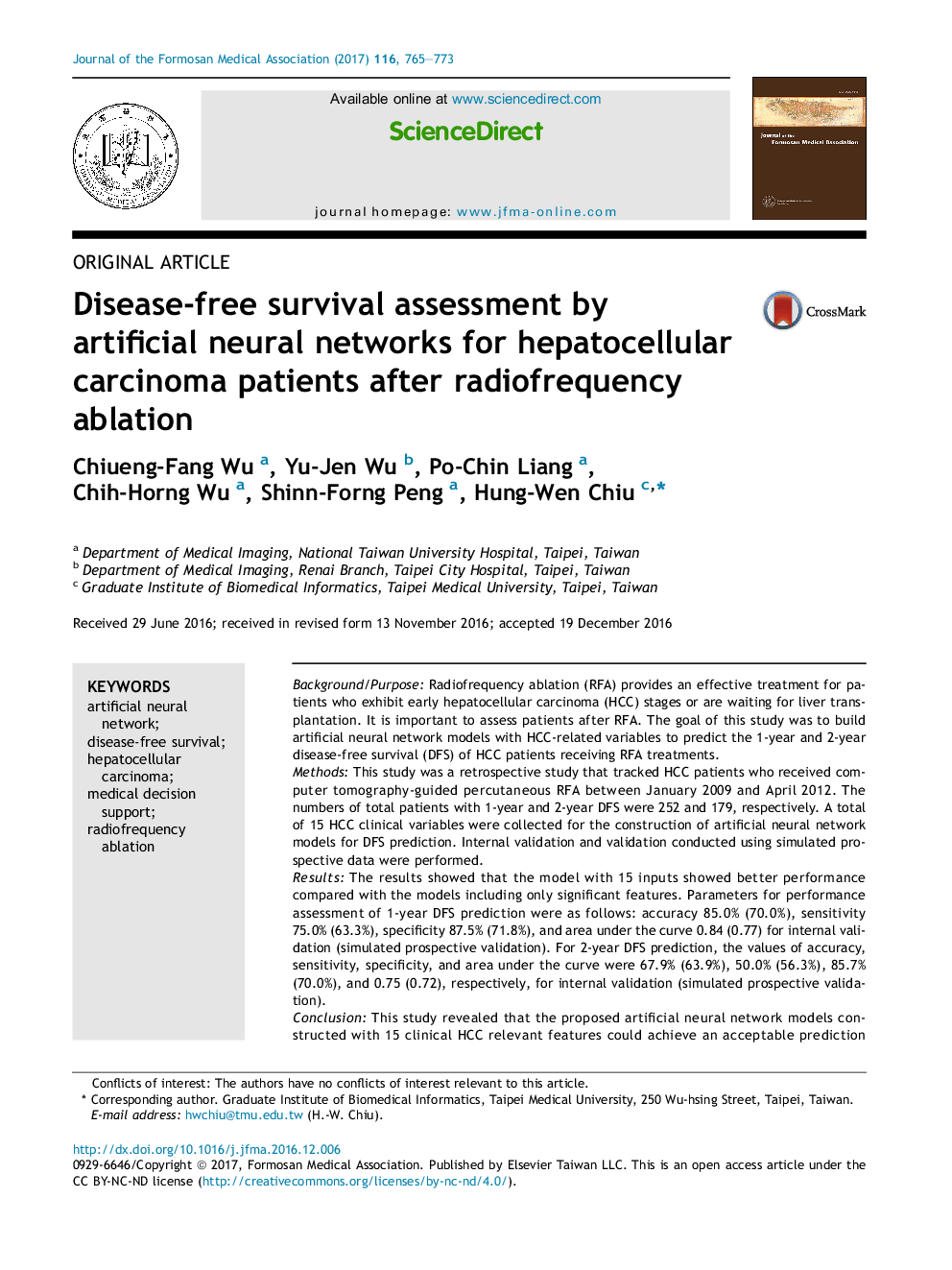| کد مقاله | کد نشریه | سال انتشار | مقاله انگلیسی | نسخه تمام متن |
|---|---|---|---|---|
| 5679834 | 1596775 | 2017 | 9 صفحه PDF | دانلود رایگان |

Background/PurposeRadiofrequency ablation (RFA) provides an effective treatment for patients who exhibit early hepatocellular carcinoma (HCC) stages or are waiting for liver transplantation. It is important to assess patients after RFA. The goal of this study was to build artificial neural network models with HCC-related variables to predict the 1-year and 2-year disease-free survival (DFS) of HCC patients receiving RFA treatments.MethodsThis study was a retrospective study that tracked HCC patients who received computer tomography-guided percutaneous RFA between January 2009 and April 2012. The numbers of total patients with 1-year and 2-year DFS were 252 and 179, respectively. A total of 15 HCC clinical variables were collected for the construction of artificial neural network models for DFS prediction. Internal validation and validation conducted using simulated prospective data were performed.ResultsThe results showed that the model with 15 inputs showed better performance compared with the models including only significant features. Parameters for performance assessment of 1-year DFS prediction were as follows: accuracy 85.0% (70.0%), sensitivity 75.0% (63.3%), specificity 87.5% (71.8%), and area under the curve 0.84 (0.77) for internal validation (simulated prospective validation). For 2-year DFS prediction, the values of accuracy, sensitivity, specificity, and area under the curve were 67.9% (63.9%), 50.0% (56.3%), 85.7% (70.0%), and 0.75 (0.72), respectively, for internal validation (simulated prospective validation).ConclusionThis study revealed that the proposed artificial neural network models constructed with 15 clinical HCC relevant features could achieve an acceptable prediction performance for DFS. Such models can support clinical physicians to deal with clinical decision-making processes on the prognosis of HCC patients receiving RFA treatments.
Journal: Journal of the Formosan Medical Association - Volume 116, Issue 10, October 2017, Pages 765-773